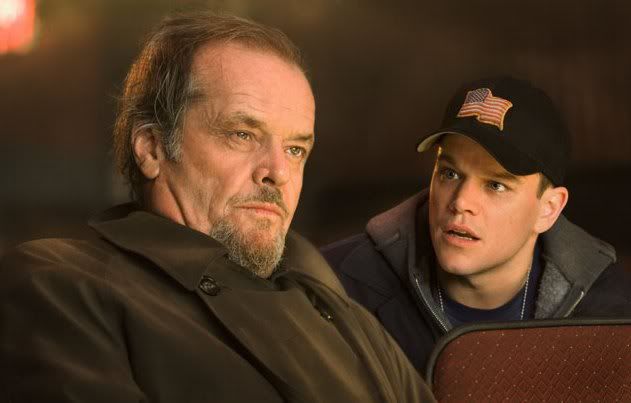Cuddle the fu**er.
"Ted", with its cute stuffed toy lead, looks just like one of those films that can easily be mistaken as a highly disposable children's movie. After all, the film stars a middle-aged man and a fluffy Teddy bear. On paper, "Ted" seems to have 'family' and 'General Patronage' written all over it. It's a film that kind of looks like a thing that's reason enough for families to celebrate, for a movie date during the weekends will surely be set. But wait, did I forget that Seth MacFarlane is the director? Yes, cue in the obligatory 'vinyl scratch' sound. Damn that "Family Guy" guy.
With an initially misleading opening narration reminiscent of all those Christmas movies, "Ted" opens up telling us about the story of a lonely boy who literally wished upon a star for his teddy bear to come to life and be his best friend forever. For the first 30 minutes, the film is surprisingly wholesome and, I can't believe I'm writing this about a Seth MacFarlane film, innocently magical. From talking snowmen to a kid suddenly inheriting an entire chocolate factory, many magical, film-bound stories have led us to believe that people, especially those with the purest of hearts, can indeed live happily ever after. "Ted", in its essence, is a postmodern reflection on all those children's movies but with all the realistic repercussions intact. What if Charlie Bucket was asked to appear on Larry King live and be forced to explain how his employment of Oompa-Loompas is, by no means, illegal? What if Matilda's parents were suddenly asked to appear on the Jerry Springer show? "Ted", in all its irreverence, tries to explore the notion of whether or not the "...And they lived happily ever after" part in children's stories has a follow-up sentence or two.
Turns out, John's teddy bear became quite a television sensation. Appearing in countless talk shows and whatnot, he gradually became kind of like the post-fame Macaulay Culkin (already a fact) and Justin Bieber (just wait): cocky, pot-headed and hopeless. And now, even John Bennett (Mark Wahlberg), the kind-hearted young boy who just wanted to have a friend, is now also a Ganja-smoking slacker. Talk about 'happily ever after'.
Ripe with crude humor and littered with jokes that range from the offensively sexual and racial to the downright scatological, "Ted" is surely not the film to bring a conservative girl to on a first date. But on the other hand, it sure is the perfect film to watch baked. But aside from that, coming from a viewer who has seen the film sober and all, "Ted" is, sadly, quite forgettable and, at times, even boring. Though it boasts of competent lead performances by Mark Wahlberg, Mila Kunis and MacFarlane himself (he voiced the titular character), the film quite suffers from its predictable, run-of-the-mill plot and some one-bit gags that seem to have been directly recycled from "Family Guy". Giovanni Ribisi though, on the other hand, was quite gratifying to watch in a very far-out role.
But despite that, the chemistry between the titular CGI bear and Mark Wahlberg is hard to deny. Though Wahlberg, post-"Boogie Nights", is more commonly known as a 'go-to' movie tough guy, he exudes a kind of careless boyishness in this film that complements the film's reckless comedic tone. While Seth MacFarlane, voicing the titular character, is perfect foil to the film's every pseudo-attempt at showing order. In a way, he's like a conflation of a non-murderous version of Chucky and a fuzzier Borat. Yeah, that's basically Ted.
With an abundance of intensely subversive jokes and parodying cameos, "Ted" succeeds as a sort of comedy movie of the week. But aside from that, what with its uninspired plot and repetitive humor, the film lacks that certain punch to propel it to something higher. I've seen funnier fragments of "Family Guy".
FINAL RATING









